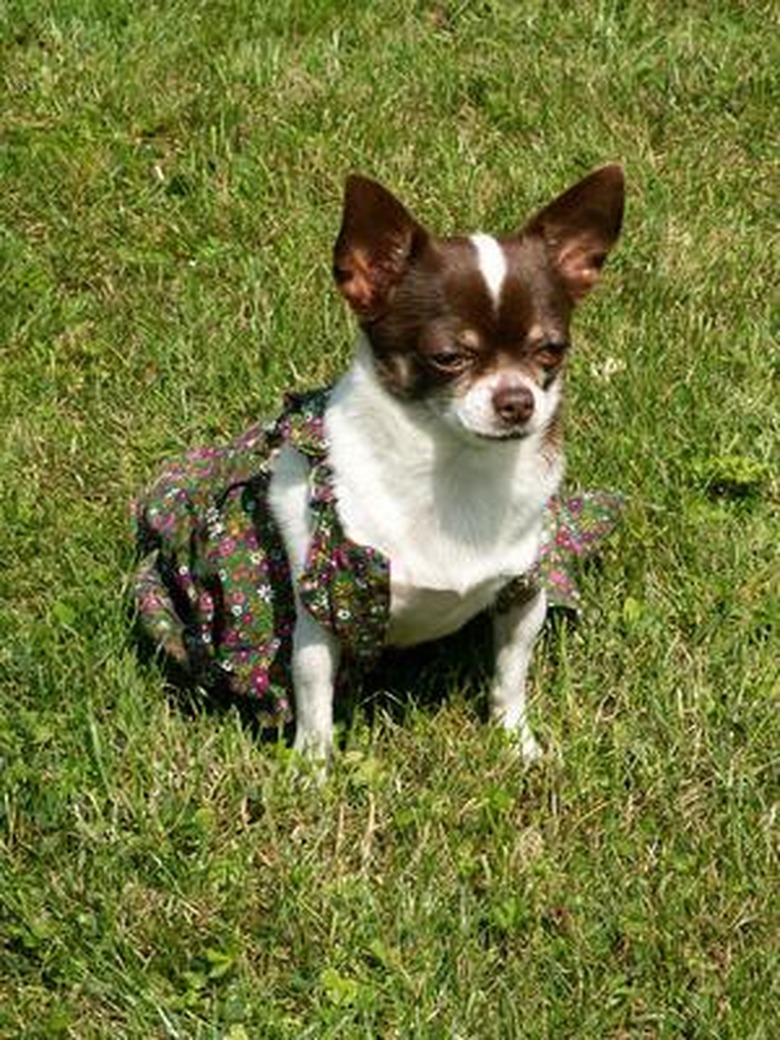How To Potty Train A Chiweenie
When you're training your Chiweenie puppy, commit to a regular training schedule, give your puppy a smaller space to call home, make sure she uses her bathroom time, and provide her with positive reinforcement. Chihuahua mix breeds are harder to potty train than some other dog breeds. Their bladders are much smaller than most breeds, and they can't hold their urine for as long as larger dogs.
If you go to work during the day, it can be tricky getting your puppy outside as often as she needs to go. Unless there is someone to take care of your dog during the day, potty training can be a difficult task.
Commit to training a Chiweenie
Commit to training a Chiweenie
Training a Chiweenie on a regular schedule is key to success. Make sure you take your dog out as soon as he wakes up, right before he goes to bed, and regularly during the day. Since Chiweenie puppies are smaller than most other breeds, they need to go to the bathroom more frequently. A tiny dog with a tiny bladder can't hold his pee for as long as a larger dog.
- A 3-month-old Chiweenie can hold his pee for 30 minutes.
- A 4-month-old Chiweenie can hold his pee for 45 minutes.
- A 6-month-old Chiweenie can hold his pee for 60 to 90 minutes.
- A 9-month-old Chiweenie can hold his pee for up to 3 hours.
- A 1-year-old Chiweenie can hold his pee for up to 4 hours.
Since all dogs are different, make adjustments where it suits your puppy. Don't restrict how much water he can drink during the day. This puts him at risk of dehydration. However, moving his water dish away a couple of hours before he goes to bed can help prevent the need for nighttime bathroom breaks and therefore unexpected nighttime accidents.
Restrict your Chiweenie to one area
Restrict your Chiweenie to one area
Your dog's crate is your friend while potty training. If you don't use a crate, keep your puppy restricted to one room. Like humans, dogs will usually try their hardest to avoid going to the bathroom near the area where they sleep. Keeping your dog in a larger area means she may feel more comfortable going to the bathroom in her personal space, and she probably wouldn't think twice about going to the bathroom in your space.
The smaller the area, the less likely your dog will feel comfortable peeing in the house. If done properly, your dog will do her best to hold it until she gets outside for her next bathroom break. When your dog needs to go, she'll most likely let you know by whining or scratching at her crate.
Pay attention during bathroom breaks
Pay attention during bathroom breaks
Sometimes, puppies get so excited about going outside for walks that they forget to do their business while they're out there. On the assumption that your dog has done what he set out to do, you might believe he's fine until his next bathroom break. If he needs to hold his pee for double the length of time, it can lead to accidents inside the house.
The good news is that there is a simple solution for this. Keep an eye on your puppy during his bathroom break. Make sure he empties his bladder most of the way. Don't let him get too distracted or you may find yourself dealing with a mess later.
Use positive reinforcement
Use positive reinforcement
While it may be frustrating to have to clean up dog pee when you come home, don't take your frustration out on your puppy. She's still learning, after all. The best way you can encourage your puppy is to give her positive reinforcement when she does her business outside. Your praise (and maybe a treat) is enough to make her want to keep doing it.
Punishing your puppy because she had an accident in the house isn't going to encourage good behavior. It will probably just make her afraid of you. Fear and anxiety could make the problem worse. If your puppy starts to have an accident, correct the behavior by leading her outside as quickly as possible and then reward her when she finishes her business outside.
